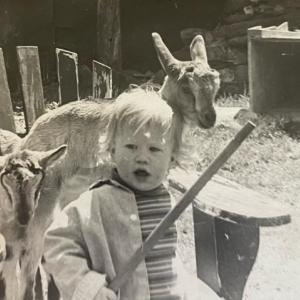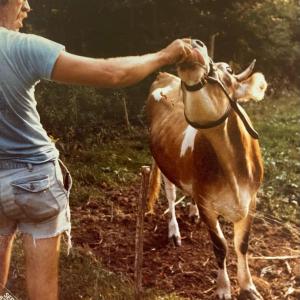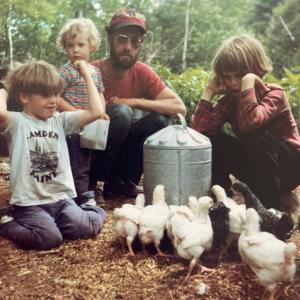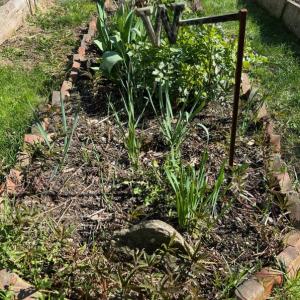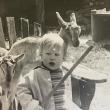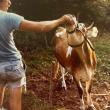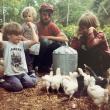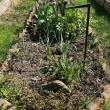This Week in Lincolnville: The Barnyard
 Little Bill O’Brien shares a seat with a goat. (Photo by Diane O’Brien)
Little Bill O’Brien shares a seat with a goat. (Photo by Diane O’Brien)
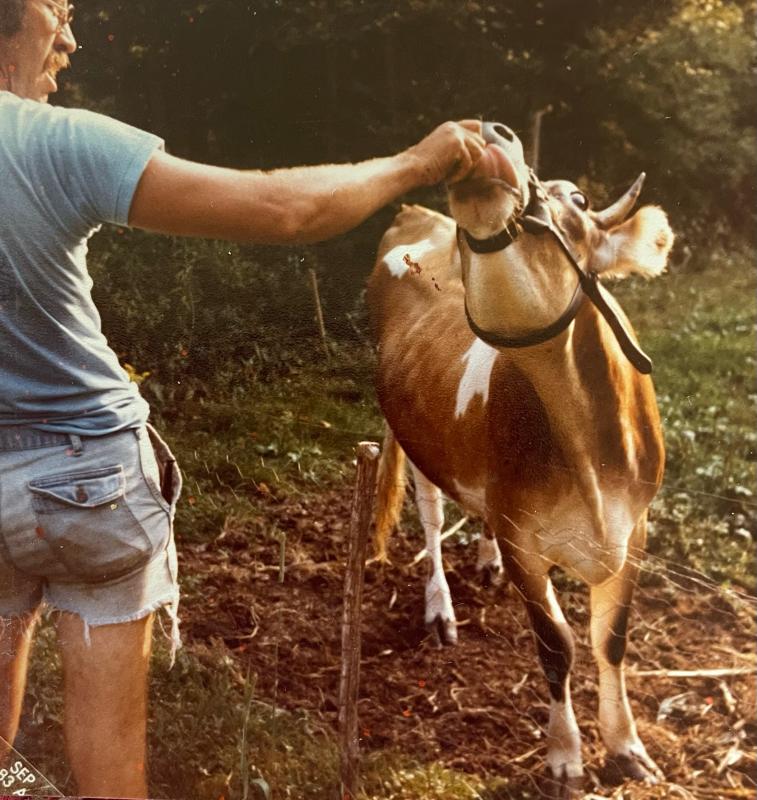 A man and his best girl. Wally O’Brien and Daisy in 1983. (Photo by Diane O’Brien)
A man and his best girl. Wally O’Brien and Daisy in 1983. (Photo by Diane O’Brien)
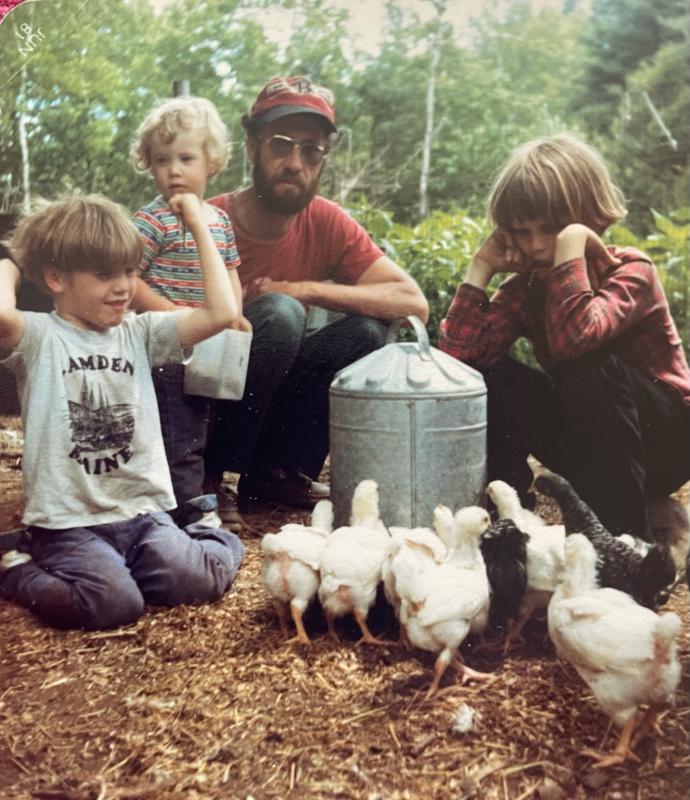 The O’Brien boys welcome a new group of chickens to the barnyard. (Photo by Diane O’Brien)
The O’Brien boys welcome a new group of chickens to the barnyard. (Photo by Diane O’Brien)
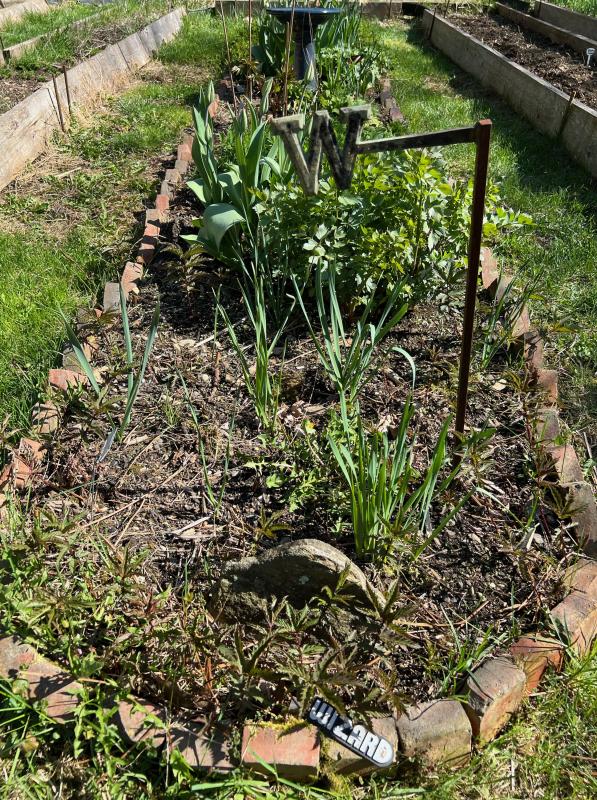 A memorial garden bed for a man who loved this place. (Photo by Tracee O’Brien)
A memorial garden bed for a man who loved this place. (Photo by Tracee O’Brien)
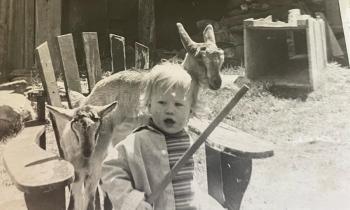 Little Bill O’Brien shares a seat with a goat. (Photo by Diane O’Brien)
Little Bill O’Brien shares a seat with a goat. (Photo by Diane O’Brien)
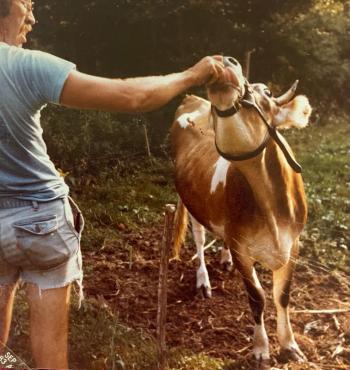 A man and his best girl. Wally O’Brien and Daisy in 1983. (Photo by Diane O’Brien)
A man and his best girl. Wally O’Brien and Daisy in 1983. (Photo by Diane O’Brien)
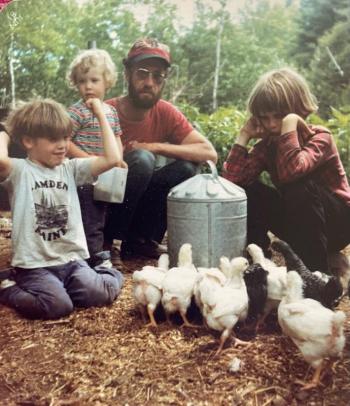 The O’Brien boys welcome a new group of chickens to the barnyard. (Photo by Diane O’Brien)
The O’Brien boys welcome a new group of chickens to the barnyard. (Photo by Diane O’Brien)
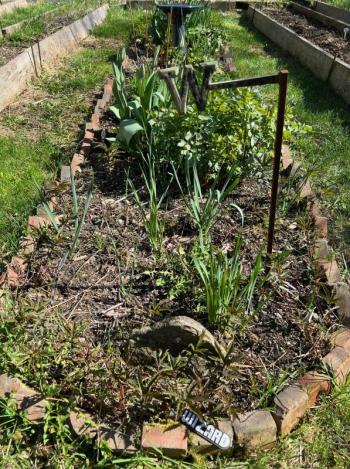 A memorial garden bed for a man who loved this place. (Photo by Tracee O’Brien)
A memorial garden bed for a man who loved this place. (Photo by Tracee O’Brien)
In 1954 Helen and Scott Nearing published The Good Life: How to Live Simply and Sanely in a Troubled World. In the years that followed, this became the blueprint for the “Back-to-the-Land” movement of the 1970s. The state of Maine, where populations had been declining for years, suddenly had an influx of new residents, drawn in by cheap land and farmhouses, pursuing the dream of subsistence farming and living “the Good Life.”
My parents started their family adjacent to this. My mom, raised in the tony suburbs of North Shore Chicago, and who fell in love with Maine while attending Colby College, may have looked like the typical back-to-the-lander, but my dad — a poor kid from Augusta, who got through college on the GI Bill — less so. He just wanted a cow.
They met in the late 1960s in Rockland, where my mom was teaching middle school English and my father was the teaching principal of Owls Head. In early 1970, as wedding plans were being made for an April Break wedding in Kenilworth, Illinois, they came upon the farmhouse at the top of Sleepy Hollow, and fell in love with the ramshackle old place.
Now this was before my time, so the early days of my parent’s life in this place are shrouded by half remembered stories: goats that helped clear out the scrubland that now makes up the garden, Volkswagen-destroying steers, amateur pig butchery at the kitchen table.... A young couple with no money and no idea what they were doing, trying to raise livestock in a town where farming had been pretty much given up on.
Not to mention that the bearded young man who smoked a pipe had been hired as the new principal of the Lincolnville-Hope 5-8 grade school in the Center. I can imagine the eye-rolling and whispering of the locals.
No, my early memories are of the barnyard, and the garden alongside it. The lower barn, now full of bikes and camping gear, was once the home of a succession of dairy cows, and often, the young meat critter which she bore. Not to mention Cocoa, the sweet but useless Shetland pony mix, a large pet and companion to several cows. The muddy barnyard, enclosing the back of the barn with ramshackle fencing, full of chickens and terrifying geese, the snakes of the avian kingdom, cobra chickens.
And of course the pig pen. My parents used to tell me how little Eddie would sit on a rock in the pen and talk to the pigs. I later learned that the picket fence was initially developed to keep children out of the pig pen, due to pigs tendency to eat small children. What the heck, Ma and Pa!?
As I have written before, growing up in this place with a single teacher’s salary meant we relied on the products grown here. Lots of dairy and eggs. Surplus butter and raw milk and eggs were sold to our neighbors. I’m not sure how aware of this my parents were at the time, but they were continuing a long Lincolnville tradition of making do.
Vegetables were canned and stored in the pantry at the top of the cellar stairs, another old practice which was largely forgotten by the 1970s. Not many still knew how to milk a cow by hand when my dad got his first Jersey, but he figured it out. Milk the cow, drive to Castine, where he had taken over as principal in 1975, drive home and milk the cow again. One side benefit; he could take home the leftovers from the school lunch to feed the pigs.
I never grew up with any illusions of where meat came from. I had seen the steak or drumstick being born and hatched, and often, how it went from the barnyard to the freezer to the plate.
Realistically, I doubt growing so much of our own food actually saved much money, with labor plus feed and seed prices, but it gave my parents the life that they wanted, and by extension, an amazing childhood for my brothers and I.
Eventually the barnyard quieted down. The last pig was a retirement gift from his school in 2000, and then the last cow, an ill-tempered old girl, was gone. Cocoa passed, and all that remained was a flock of chickens, the pack of dinosaurs that remain ever present alongside the garden, with a fancy new house built by my wife and father-in-law a couple years ago. The old barnyard became an expansion to the garden, a place for potatoes and corn. Eggs remain for sale by chance in the barn fridge.
The garden, a field of briars in 1970, is now nourished by 30 years worth of manure scooped out of the lower barn. My mom and wife have organized it into raised beds with mowable grass walkways between them.
And in the middle of it all stands a bed full of perennial flowers and birdbath, a memorial to my father, where he can survey the garden, the lower barn, the old barnyard.
Library Program
On Wednesday, May 17, from 6:30 to 7:30, local horror author Samantha Eaton will provide a task for aspiring authors of all ages at the Lincolnville Community Library. Eaton is the author of The Insatiable Hunger of Trees and the upcoming The Roots in your Bones, and a Lincolnville resident who grew up in the area. Take something you are working on to get feedback and share your writing with others.
Scout Flower Sale
Troop 200, made up of Camden-Rockport-Lincolnville Scouts, will be holding a flower sale in honor of Mother’s Day on Saturday, May 13, at Rankin’s Hardware in Camden, starting at 9a.m. Go get something nice for the lady that put up with you for all those years!
The torrential rains of last week have left the soil ready, the forsythias are starting to bloom, and it is time to get those gardens going, if you haven’t yet. I will be happily supervising with a book in my lap. Enjoy the Spring, be well and do good.

